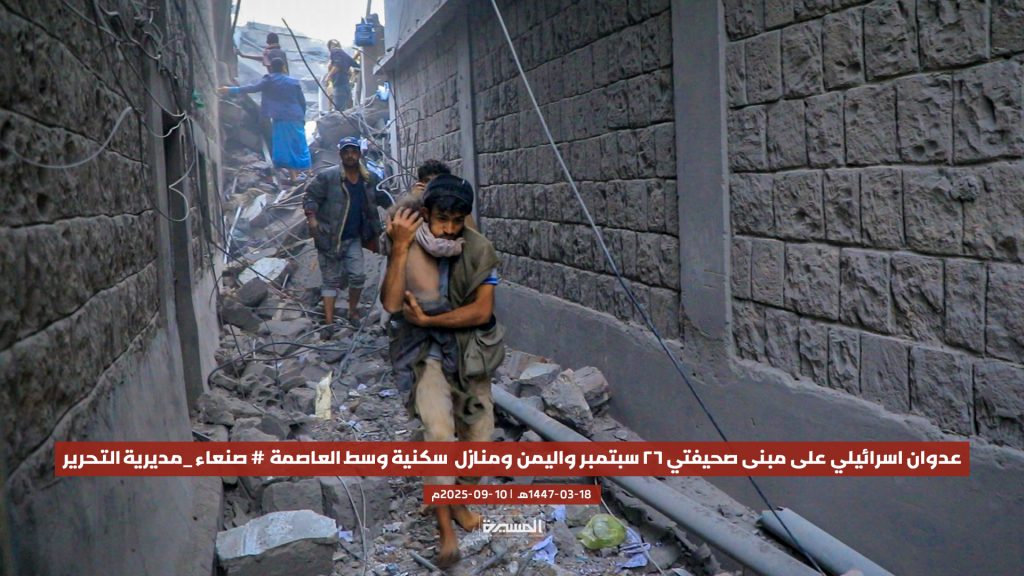Heavy Israeli airstrikes targeted Yemen on Wednesday, hitting the capital Sanaa and the Jawf province, killing at least 35 people and wounding 131 more, according to the Yemeni Health Ministry.
Health Ministry spokesman Anis al-Asbahi said in a post on X that 28 people were killed in the strikes on Sanaa and seven were killed in Jawf. “In a non-final toll, as civil defense teams, ambulances, and rescue are still searching for missing persons under the rubble and debris, and the number is likely to increase,” he said.
Footage from Yemen’s Al Masirah TV shows two young girls being rescued from the rubble in Sanaa. The channel also released photos of children at a hospital, who it said were injured in strikes on the Yemeni capital.

According to Al Jazeera, the Health Ministry said the strikes hit civilian areas, including homes in Sanaa’s al-Tahrir neighborhood, a medical facility in the southwest of the city, and a government compound in al-Jawf’s capital, al-Hazm.
The Israeli military claimed that the strikes targeted “military camps in which operatives of the terrorist regime were identified, the Houthis’ military public relations headquarters and a fuel storage facility that was used by the terrorist regime.”
The Israeli attacks come as the Houthis, officially known as Ansar Allah, have continued their attacks on Israel and have vowed that the operations will continue until there’s a ceasefire in Gaza and an end to the Israeli blockade on the Palestinian territory. In the wake of Wednesday’s strikes, Yemeni officials said they would respond.
According to Yemen’s SABA news agency, the parliament for Yemen’s Sanaa-based government “emphasized that such actions will not deter Yemenis from fulfilling their national, religious, and moral duties to support the people of Gaza, who endure unprecedented aggression and siege.”
Israeli officials have been threatening to increase attacks on Yemen, including Israeli Defense Minister Israel Katz, who has repeatedly threatened the country with biblical plagues.
The Houthis are known for their resilience and did not back down in the face of a very heavy US bombing campaign that the Trump administration conducted from March 15 to May 6, which killed more than 250 civilians. The US gave up on trying to get the Houthis to stop their attacks on Israel and blockade of Israeli shipping and agreed to a ceasefire with the group.


